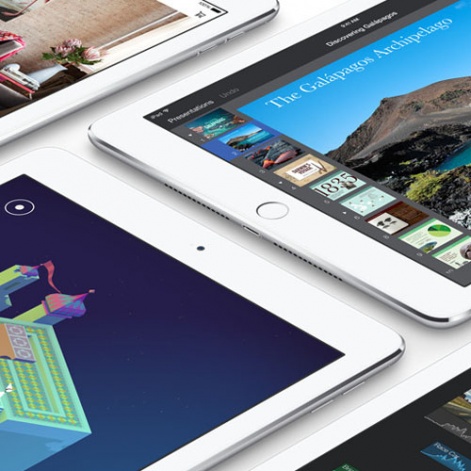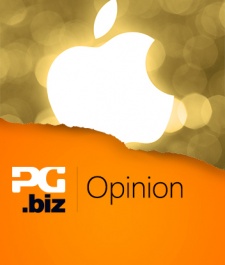"Oh God," tweeted someone on my timeline. "I forgot. There's another Apple keynote tonight isn't there?"
Apathy. Ambivalence. Plain old boredom. In truth, it wasn't the close proximity of Apple's big iPad reveal to its iPhone 6 and iPhone 6+ (or iPad mini mini, if you like) unveiling that soured what is typically an orgy of enthusiasm in the run up to any event hosted by the Cupertino giant.
No, what dulled the appetite for a big iPad event was the fact that everybody knew it wasn't actually going to be that big.
Apple, once the great risk taker is now the reliable iterator, and the press splashes that once held the attention of the world have now become as routine (and, for many, as welcome) as mince pies appearing in your local supermarket in September, or easter eggs popping up in February.
The most cutting remark anyone can make about Apple in 2014 is that it's predictable.
The great risk taker is now the reliable iterator.
A smart watch years after the tech press had been clamouring for one, a bigger iPhone years after its competition had scaled up, and no app-equipped Apple TV because, well, that's one market Apple just isn't prepared to take a risk on.
Very little about what Apple does surprises anyone anymore.
Labelling Apple 'predictable' is likely to antagonise its followers to an intolerable degree, but it doesn't make it any less true a statement.
What's cooking?
The tendancy for anyone looking to generate column inches from a somewhat drab Apple reveal, of course, is to blame Tim Cook.
He's by no means Apple's David Moyes (for American readers, that's a successor who falls far short of his predecessor's great highs) and, indeed, for Apple investors, his comparatively prudent approach when compared to Steve Jobs looks like it's starting to pay dividends in the East.
However, for a company whose hardware reveals were tantamount to a One Direction concert in terms of pure hype and hysteria, Apple's iPad Air 2 and iPad mini 3 shebang was possibly the most mundane and domestic reveal in the iOS era.
But, then, if you had the future of a powerhouse the size of Apple resting on your shoulders, wouldn't you play it safe, too?

If we consider the Apple Watch something of a daring move (which, for the record, I don't), wouldn't you try just to keep the rest of your product range ticking over?
Can we really expect Tim Cook to risk denting the sales of his two best sellers – iPhone and iPad – at the same time as launching a new product that even the most optimistic would admit is likely to remain comparatively niche for some time to come?
It isn't the lack of an exciting new take on iPad that has seemingly deflated the tech press covering the launch – to be frank, unless you glue a portable kettle to the side and turn the back plate into a flat iron, I'm not entirely sure how you can revolutionise the tablet five years and many iterations in.
Apple in 2014 seems happy to simply be dragged along by the current.
Rather, it's that Apple in 2014 seems happy to simply be dragged along by the current, drifting whichever way the market dictates.
Rocking out to the status quo
The charge that absolutely sticks is the claim that, under Jobs, there's very little chance Apple would have ever had five different iPad SKUs on the market. For developers, this creates all kinds of additional niggles when it comes to support, and that's before you even include the likes of iPads 4, 3 and 2.
It also dilutes the appeal of the brand. Apple replaced one iPhone with another, one iPad with another. It might continue selling an old SKU, but it made very little of a song and dance about it. Those times are gone.
Apple has transitioned from a company of vision to one of operations – Apple daren't risk discontinuing old models when its competition is able to undercut it by such a degree, with the $249 base level iPad mini surely still on the books to appeal to emerging markets.
Practicality now takes precedent over impulse, and Cook is running a company intent on keeping the status quo rather than rocking the boat in the way that was the Apple of old's signature style.

But isn't that exactly what a market leader should do?
Isn't that pretty much what every market leader on the planet ends up doing, inevitably being superseded by an ambitious rival some way down the line?
For those who have money invested in Apple, whose livelihoods depend on the firm, you could argue it would be irresponsible for Cook to preside over the kind of earnest Apple Jobs had control of – we will never see Apple have another 'iPad moment' where it unveils something that truly puts its competitors on the back foot and wows everyone else.
Well, not until it's been toppled from the top, anyway.






















